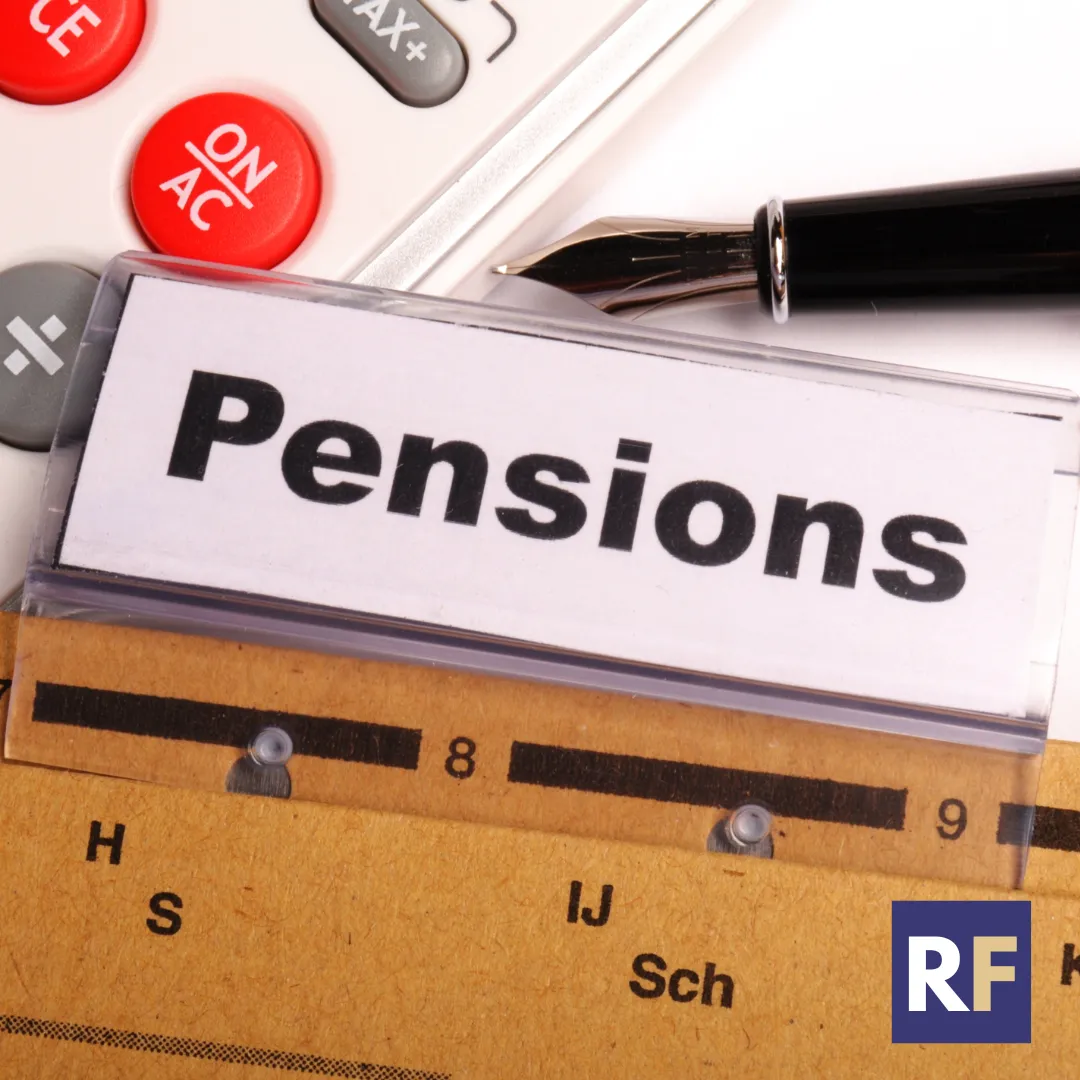Resource Articles

Top 10 Questions About Pensions: What You Need to Know
Pensions have long been a cornerstone of retirement planning, offering a reliable income stream for life. Despite their importance, many people still have questions about how pensions work, their benefits, and how they fit into a broader retirement strategy. In this article, we'll explore the top 10 questions about pensions to help you better understand this crucial aspect of retirement planning.
1. What Is a Pension, and How Does It Work?
A pension is a retirement plan that provides a steady income stream to individuals after they retire, typically funded by an employer, although some pensions can be funded by individuals themselves. The amount you receive from a pension is usually based on your salary and the number of years you've worked for your employer. Upon retirement, you receive regular payments, often for the rest of your life. Unlike other retirement plans, such as 401(k)s or IRAs, where the individual bears the investment risk, pensions are defined benefit plans, meaning the employer promises a specific payout regardless of the performance of the underlying investments.
2. How Are Pension Benefits Calculated?
Pension benefits are calculated based on a formula that typically considers your years of service with the employer, your average salary during your highest-earning years (often the last few years before retirement), and a benefit multiplier. For example, if you worked for 30 years, had an average salary of $60,000, and the benefit multiplier is 1.5%, your annual pension benefit would be calculated as follows: 30 years × $60,000 × 1.5% = $27,000 per year. This formula can vary depending on the specific terms of your pension plan, and some plans may also consider factors like age at retirement or provide cost-of-living adjustments.
3. What Happens to My Pension If I Leave My Job Before Retirement?
If you leave your job before retirement, what happens to your pension depends on whether you are vested in the plan. Vesting refers to your right to receive benefits from the pension plan. In many cases, employees become fully vested after a certain number of years, such as five or ten years of service. If you leave before you are vested, you may forfeit your pension benefits. However, if you are vested, you can still receive your pension when you reach the plan's retirement age, even if you are no longer with the company. Some pension plans may allow you to take a lump-sum payment if you leave before retirement, which you can roll over into an IRA or another retirement account.
4. Can I Have a Pension and a 401(k) or IRA?
Yes, you can have both a pension and other retirement accounts like a 401(k) or IRA. In fact, having multiple retirement income sources is often advisable as it diversifies your retirement income and reduces reliance on a single source. While pensions provide a guaranteed income, 401(k)s and IRAs offer more flexibility and control over your investments. Contributing to a 401(k) or IRA alongside your pension can help you save additional funds for retirement and provide a financial cushion in case your pension benefits are not sufficient to cover all your retirement expenses.
5. How Does a Pension Affect My Social Security Benefits?
The relationship between pensions and Social Security benefits can be complex, especially if your pension comes from a job where you did not pay Social Security taxes. In such cases, your Social Security benefits may be reduced due to the Windfall Elimination Provision (WEP) or the Government Pension Offset (GPO). The WEP affects individuals who receive a pension from work not covered by Social Security, while the GPO impacts those who receive a government pension and are also eligible for Social Security spousal or survivor benefits. However, if your pension comes from a job where you paid Social Security taxes, your pension should not reduce your Social Security benefits. It is important to understand these provisions and how they might affect your overall retirement income.
6. What Are the Tax Implications of Receiving a Pension?
Pension income is generally taxable at the federal level as ordinary income. This means that, depending on your total income, your pension could push you into a higher tax bracket. Some states also tax pension income, while others offer partial or full exemptions for retirees. It is essential to understand the tax rules in your state and plan accordingly to manage your tax liability in retirement. Depending on your tax situation, you might consider strategies such as withholding taxes from your pension payments or making estimated tax payments to avoid underpayment penalties.
7. Can I Pass My Pension on to My Spouse or Heirs?
Many pension plans offer options for spousal benefits, allowing you to provide ongoing income to your spouse after your death. This is typically done through joint and survivor annuities, where you receive a slightly reduced pension during your lifetime, and your spouse continues to receive payments after your passing. The amount your spouse receives is usually a percentage of your pension, such as 50% or 75%, depending on the option you choose. However, pensions are generally not inheritable by heirs beyond your spouse, and any remaining benefits may not be passed on to other beneficiaries after both you and your spouse have passed away. Some plans offer a lump-sum payout option that can be passed on to heirs, but this may reduce the overall benefits.
8. How Does Inflation Impact My Pension?
Inflation can erode the purchasing power of your pension over time, especially if your pension does not include cost-of-living adjustments (COLAs). COLAs are periodic increases in pension benefits designed to keep up with inflation, but not all pension plans offer them. If your pension does not include COLAs, the fixed amount you receive may not be sufficient to cover rising living expenses in the future. Planning for inflation is crucial, and you may want to consider other income sources, such as a 401(k) or IRA, to help mitigate the impact of inflation on your retirement income.
9. What Happens to My Pension If My Employer Goes Out of Business?
If your employer goes out of business, your pension may be protected by the Pension Benefit Guaranty Corporation (PBGC), a federal agency that insures private-sector pension plans. The PBGC will step in to pay your benefits, up to certain limits, if your pension plan is terminated due to your employer's bankruptcy or other financial difficulties. However, there are limits to the amount the PBGC will pay, and if your pension benefits exceed these limits, you may not receive your full pension. It's important to understand the specifics of your pension plan and whether it's covered by the PBGC.
10. How Should I Factor My Pension into My Overall Retirement Plan?
A pension is a valuable component of your retirement plan, but it should not be your only source of retirement income. Consider your pension alongside other retirement accounts, Social Security, and any personal savings or investments. Diversifying your income sources can help protect against unexpected changes in your pension benefits, such as reductions due to inflation or changes in your employer's financial situation. Additionally, consider the timing of when to start receiving your pension, as this can affect your overall retirement income. For example, delaying your pension may result in higher benefits, but you’ll need to weigh this against the need for income earlier in retirement. Working with a financial advisor can help you develop a comprehensive retirement plan that incorporates your pension and aligns with your long-term goals.
Conclusion
Understanding your pension and how it fits into your broader retirement strategy is essential for securing a comfortable and financially stable retirement. By asking the right questions and planning carefully, you can make the most of your pension benefits and ensure that your retirement years are truly golden.

Trusted Industry Experts
Getting through retirement is no small feat. We've trained experts to serve you in every way from your health to your wealth.

Locations
Resources
Shortcuts
Privacy Policy
Terms of Use
Accessibility
© 2026 Retirement Fundamentals. All rights reserved.
